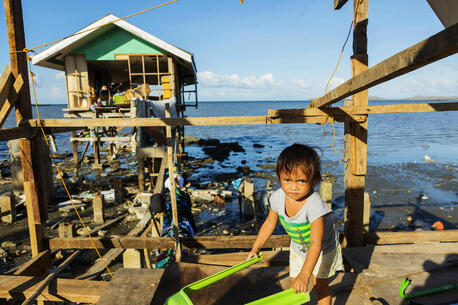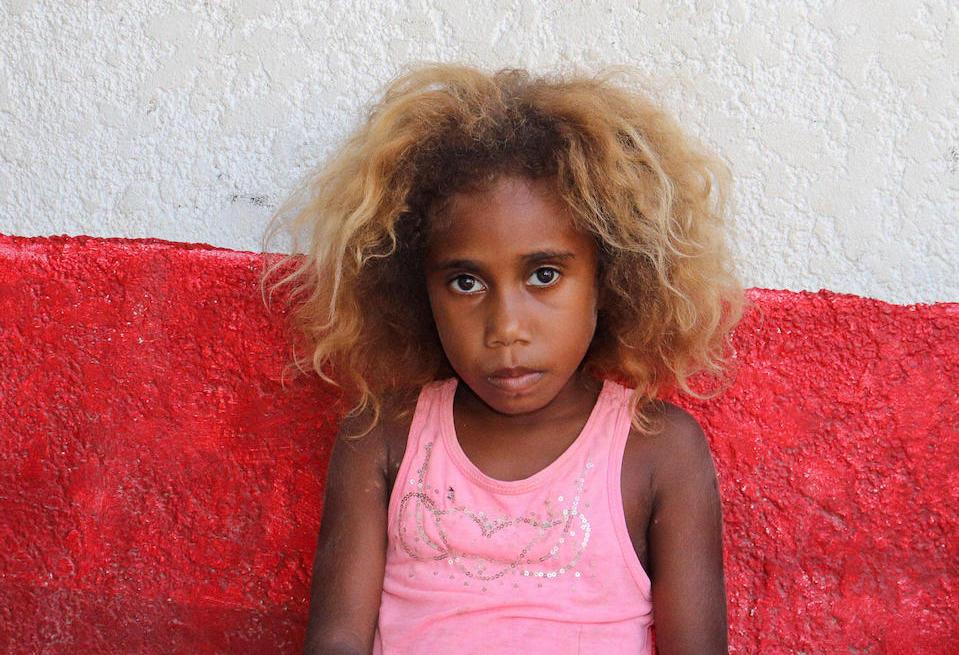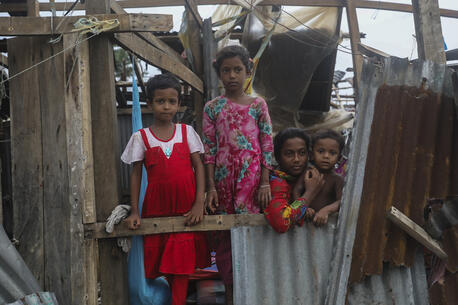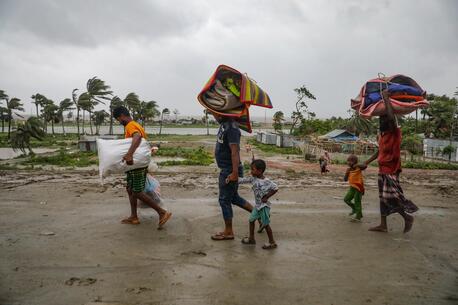
UNICEF's Today & Tomorrow Initiative: Climate Financing in Action
An innovative financing mechanism created through UNICEF's Today & Tomorrow Initiative, launched in November 2022, helps countries bearing the brunt of climate shocks get the support they need to reduce the damage and build back better. How it works, and why UNICEF is talking it up at the COP28 climate conference.
An effort to increase support for disaster-prone countries through innovative financing
The number of natural disasters has increased fivefold in the past 50 years. Largely driven by climate change and extreme weather events, these disasters are fueling greater and greater cycles of devastation and loss — and children are bearing the brunt of it all.
UNICEF identified an ever-widening finance gap for climate resilience and disaster risk reduction work — which UNICEF calculates will reach $315 billion to $565 billion by 2050, with twice the number of people requiring humanitarian assistance.
Today & Tomorrow: the world’s first integrated climate and disaster risk finance solution for children
The Today & Tomorrow Initiative (T&T) seeks to close that gap by creating a new climate financing mechanism that invests in current risk reduction and climate resilience, while using parametric insurance — or disaster risk transfer, provided by the insurance market — to protect children against future climate shocks.
In less than a year since launch, over $3.9 million in Tomorrow insurance payouts have already been generated for six pilot countries hit by nine cyclones in 2023: Bangladesh, Fiji, Madagascar, Mozambique, Solomon Islands and Vanuatu, with support from the UK and German governments.
The goal now is to raise additional capital to catalyze up to $100 million in payouts over three years by bringing in more private sector partners, and expanding the program to cover more countries and other types of climate hazards such as drought, flooding and heat waves.

Vanuatu — a case study in new climate financing approaches
Vanuatu has been slammed by cyclones in recent years — four Category 4 cyclones and one Category 5 since 2020, with four of those five hitting the Pacific island nation in 2023 alone, two of them — Tropical Cyclone Kevin and Tropical Cyclone Judy — in the same week. It is predicted that as many as six more could make landfall during the upcoming season.
UNICEF's response for children and families impacted by cyclones in Vanuatu is ongoing, with teams on the ground working to shore up water and sanitation, health, education and other essential services — and break the cycle of devastation by building back better. T&T helped fund that response, expediting the flow of support.
"There are 5-year-olds in Vanuatu today who have feared for their lives four times in their short lifetimes,” UNICEF Pacific Representative Jonathan Veitch says. “We must prioritize long-term climate resilience and implement strategies that protect our environment, infrastructure and most importantly, the well-being of our communities. It is not enough to provide lifesaving support; health, education and water systems must be improved and strengthened, to better withstand the next major shock."
A complement to existing emergency funding mechanisms
UNICEF responds to an average of 300 emergencies every year. Many go unfunded — overshadowed by higher-profile crises that dominate media (and public) attention. Or if they do receive funding, there are delays between when the money is raised to when it gets to the field. Emergency funding is often restricted — and not allocated to where it might achieve maximum impact.
Today & Tomorrow was designed to complement existing funding mechanisms to enable faster access to funding when climate disasters strike, and to improve efficiencies; it is estimated that for every $1 invested in resilience building saves $4 in emergency response costs.
“Combining Today’s programs with Tomorrow’s prepositioned financing will move countries from reliant to resilient," says Solomon Thomas, a co-author of UNICEF's innovative financing for children global vision and strategy.
Earlier this week, UNICEF endorsed the COP28 Relief, Recovery and Peace Declaration, pledging commitments to support and help strengthen climate and disaster financing for children, among other climate solutions.
Learn more about UNICEF's response to the climate crisis as a global advocate for child-focused climate action.
Support UNICEF's mission for children. Donate today.

